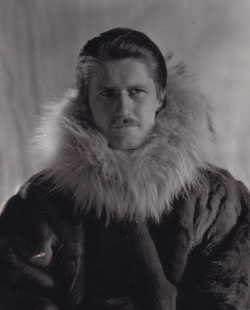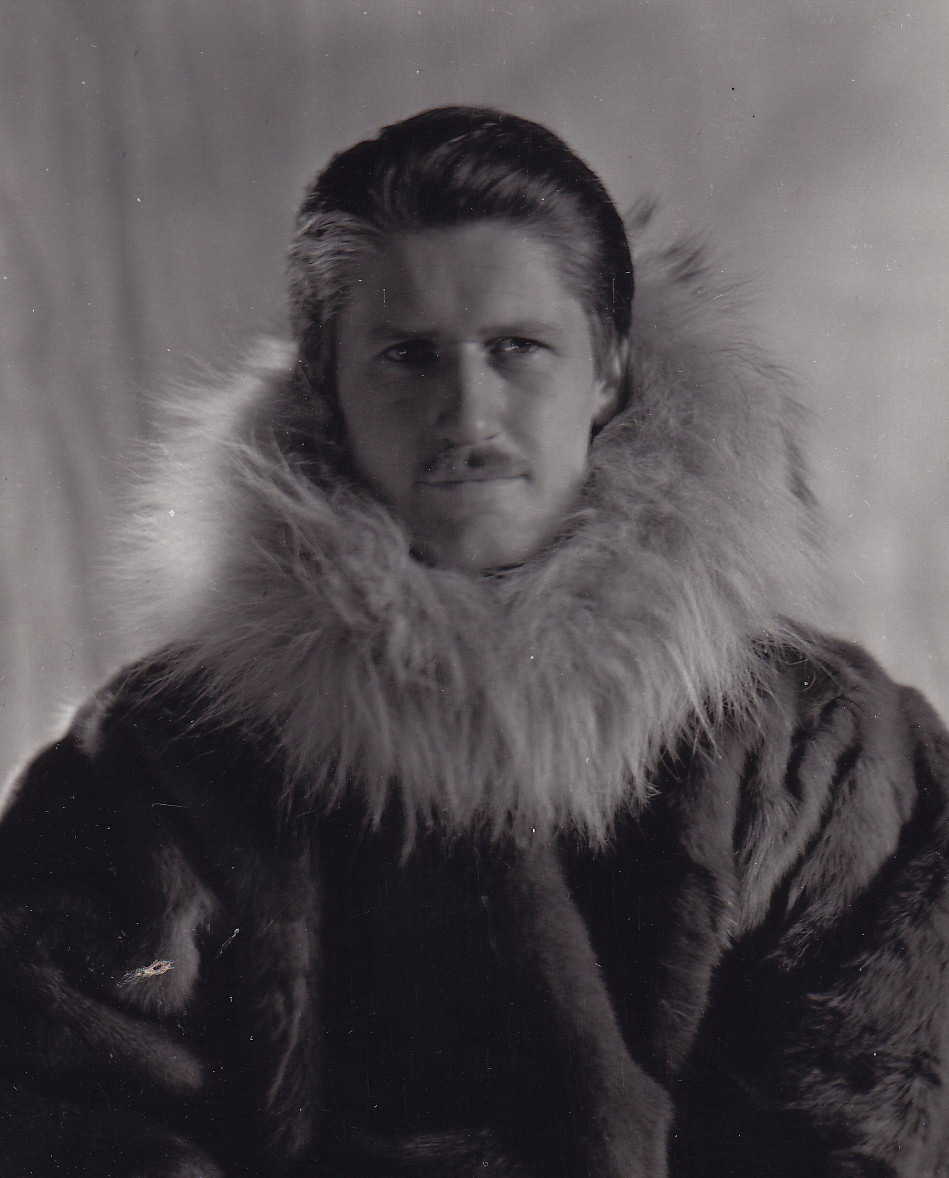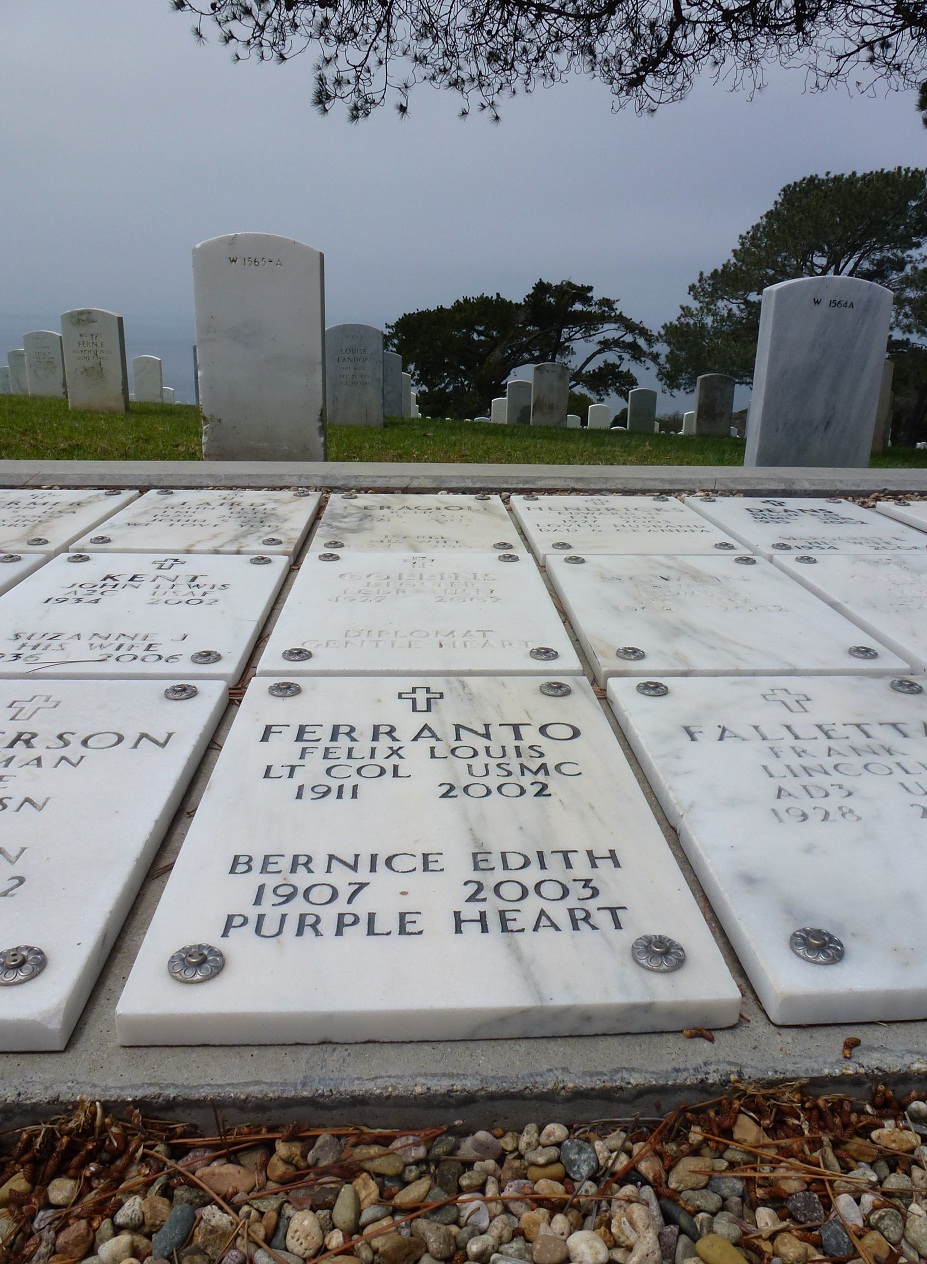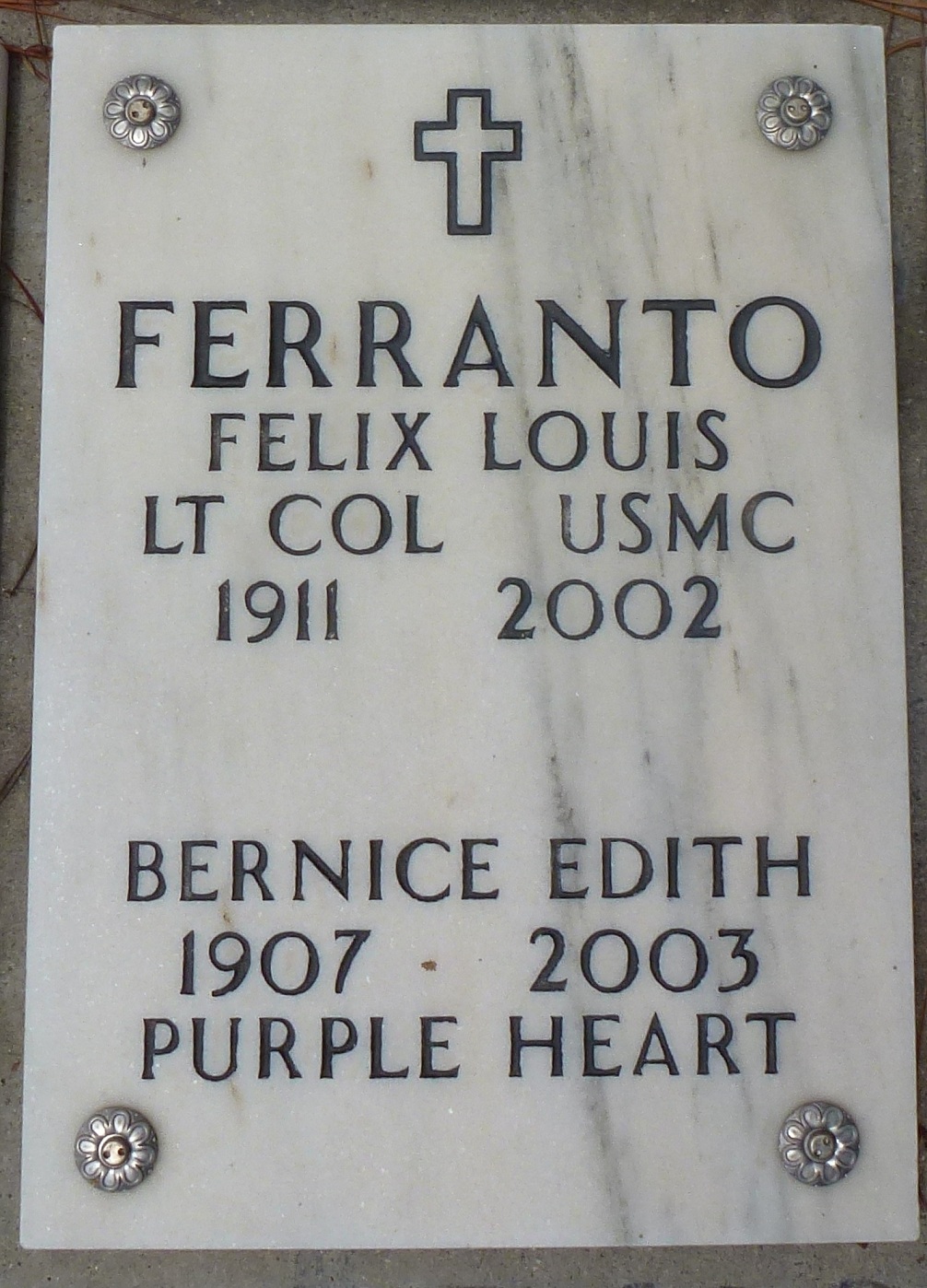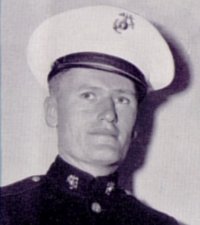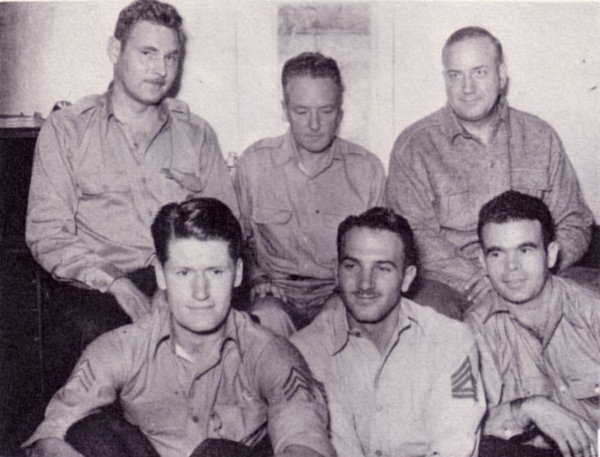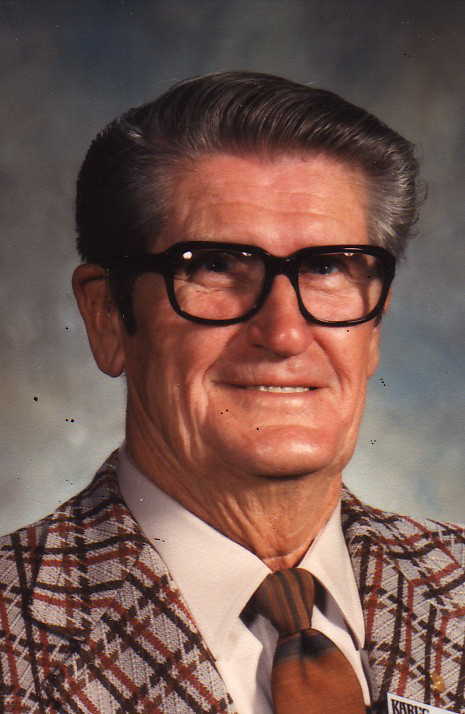For 34 months, while struggling to survive in Korean War prison camps, Felix Ferranto recited the Lord's Prayer daily and dreamed of being free.
As a radio relay platoon commander in the 1st Marine Division, he had been wounded in the lower leg and captured by Chinese forces in November 1950. During the time he was in captivity he kept meticulous notes of the other prisoners he met. When they died, he put a rectangle around their name, hiding the papers from his captors in a shaving cream cannister that he had emptied.
Meanwhile, his family in Oceanside clung to its only thread of hope: a letter his wife received shortly after his capture.
"The letter was sneaked out of the prison camp by a Chinese doctor," said Phyllis Schultz, one of Lt. Col. Ferranto's three daughters.
It was the doctor's way of repaying the then-first lieutenant for pulling him into a bunker and saving his life during an attack by Allied aircraft.
As part of a prisoner exchange with Communist forces, Col. Ferranto was released in May 1954 and reunited with his family in late September.
But there was no freedom from pain.
His wounds, exacerbated by the lack of medical care in prison, forced him to walk with a limp. He endured prolonged hospitalizations after his release. He also underwent cranial surgery to address nerve damage and chronic headaches.
Col. Ferranto, who retired from the Marine Corps in 1958 and began a civilian career in the aircraft industry, died Sunday, October 20, 2002 at Scripps Memorial Hospital-La Jolla. He was 90.
The cause of death was complications from a heart attack and pneumonia, Schultz said.
A ham-radio enthusiast as a youth in his native Brooklyn, NY, Ferranto obtained his operator license at 16 in 1927. He enlisted in the Marine Corps at New York City in 1933 and following boot camp his MOS was the communications branch. A graduate of the Radio Materials School, Naval Research Laboratory, in Washington, D. C., he was stationed in Guam for nineteen months, followed by two years at Peking. While serving in China from 1936 to 1938 with the Fourth Marines, he took part in protecting the International Settlement at Shanghai during and after the Battle of Shanghai in 1937. While in China, Ferranto learned to speak Chinese, a skill that proved valuable more than a decade later when he was taken prisoner during the Korean War.
He returned stateside to Quantico, Va., in May 1938. During the summer of 1939, 28-year old Corporal Ferranto volunteered to join the 1939-41 U.S. Antarctic Service Expedition, headed by Adm. Richard E. Byrd. He was selected from hundreds of applicants to be the radio operator in the 4-man crew of the legendary "Snow Cruiser", a 55' long, 35-ton behemoth that was designed and built at the Pullman factory in Chicago. Known as "Penguin 1", it was supposed to carry a scout plane and reach the South Pole, conquering thousands of miles of terrain marked by snowy hills and icy crevasses. The mishap laden journey of the Snow Cruiser from Chicago to Boston, where the Expedition embarked, proved to be a precursor to the giant, underpowered and inadequately geared vehicle's failure in Antarctica. Cpl. Ferranto, nonetheless, gave invaluable service as a radio operator at the West Base and on aerial missions to survey and map the "Last Continent", where he was one of the 60 men that "wintered over" for 18 months.
During World War II, Ferranto created a high-powered radio station on Guadalcanal and repaired battle-damaged signal equipment to keep lines of communication open.
Later, he was among more than 7,000 U.S. military personnel captured or interned during the Korean War. Of those, nearly 3,000 died in captivity.
In an attempt to electrocute a North Korean major, he reportedly rigged a radio. The effort was unsuccessful, leading to prolonged solitary confinement.
Col. Ferranto, a San Diego resident in recent years, completed his 25-year Marine Corps career in Oceanside. As a civilian, he worked until the mid-1960s at Hughes Aircraft. He also taught courses in amateur radio at what now is MiraCosta College, Schultz said.
His military decorations included a Bronze Star with combat "V", the Purple Heart, Prisoner of War Medal, four Presidential Unit Citations, the China Service Medal, WW II Pacific Theater Campaign Medal, Korean Service Medal and the U.S. Congressional Gold Medal for the 1939-41 Antarctic Expedition.
Survivors include his wife, Bernice, whom he married in 1939; daughters, Phyllis Schultz of San Juan Capistrano, Eileen Warford of Murrieta and Melodie of San Marcos; stepson, George Abernathy of San Diego; seven grandchildren; and eight great-grandchildren.
A memorial service was scheduled for 11 a.m. on Saturday, October 26, 2002, at Wildomar Community Church in Wildomar, CA. His remains were cremated and interred at Fort Rosecrans National Cemetery in San Diego.
+God bless this man, and keep him.+
(Obituary that provided some of the information for this biography, was courtesy of member Jerry Huffman.)
For 34 months, while struggling to survive in Korean War prison camps, Felix Ferranto recited the Lord's Prayer daily and dreamed of being free.
As a radio relay platoon commander in the 1st Marine Division, he had been wounded in the lower leg and captured by Chinese forces in November 1950. During the time he was in captivity he kept meticulous notes of the other prisoners he met. When they died, he put a rectangle around their name, hiding the papers from his captors in a shaving cream cannister that he had emptied.
Meanwhile, his family in Oceanside clung to its only thread of hope: a letter his wife received shortly after his capture.
"The letter was sneaked out of the prison camp by a Chinese doctor," said Phyllis Schultz, one of Lt. Col. Ferranto's three daughters.
It was the doctor's way of repaying the then-first lieutenant for pulling him into a bunker and saving his life during an attack by Allied aircraft.
As part of a prisoner exchange with Communist forces, Col. Ferranto was released in May 1954 and reunited with his family in late September.
But there was no freedom from pain.
His wounds, exacerbated by the lack of medical care in prison, forced him to walk with a limp. He endured prolonged hospitalizations after his release. He also underwent cranial surgery to address nerve damage and chronic headaches.
Col. Ferranto, who retired from the Marine Corps in 1958 and began a civilian career in the aircraft industry, died Sunday, October 20, 2002 at Scripps Memorial Hospital-La Jolla. He was 90.
The cause of death was complications from a heart attack and pneumonia, Schultz said.
A ham-radio enthusiast as a youth in his native Brooklyn, NY, Ferranto obtained his operator license at 16 in 1927. He enlisted in the Marine Corps at New York City in 1933 and following boot camp his MOS was the communications branch. A graduate of the Radio Materials School, Naval Research Laboratory, in Washington, D. C., he was stationed in Guam for nineteen months, followed by two years at Peking. While serving in China from 1936 to 1938 with the Fourth Marines, he took part in protecting the International Settlement at Shanghai during and after the Battle of Shanghai in 1937. While in China, Ferranto learned to speak Chinese, a skill that proved valuable more than a decade later when he was taken prisoner during the Korean War.
He returned stateside to Quantico, Va., in May 1938. During the summer of 1939, 28-year old Corporal Ferranto volunteered to join the 1939-41 U.S. Antarctic Service Expedition, headed by Adm. Richard E. Byrd. He was selected from hundreds of applicants to be the radio operator in the 4-man crew of the legendary "Snow Cruiser", a 55' long, 35-ton behemoth that was designed and built at the Pullman factory in Chicago. Known as "Penguin 1", it was supposed to carry a scout plane and reach the South Pole, conquering thousands of miles of terrain marked by snowy hills and icy crevasses. The mishap laden journey of the Snow Cruiser from Chicago to Boston, where the Expedition embarked, proved to be a precursor to the giant, underpowered and inadequately geared vehicle's failure in Antarctica. Cpl. Ferranto, nonetheless, gave invaluable service as a radio operator at the West Base and on aerial missions to survey and map the "Last Continent", where he was one of the 60 men that "wintered over" for 18 months.
During World War II, Ferranto created a high-powered radio station on Guadalcanal and repaired battle-damaged signal equipment to keep lines of communication open.
Later, he was among more than 7,000 U.S. military personnel captured or interned during the Korean War. Of those, nearly 3,000 died in captivity.
In an attempt to electrocute a North Korean major, he reportedly rigged a radio. The effort was unsuccessful, leading to prolonged solitary confinement.
Col. Ferranto, a San Diego resident in recent years, completed his 25-year Marine Corps career in Oceanside. As a civilian, he worked until the mid-1960s at Hughes Aircraft. He also taught courses in amateur radio at what now is MiraCosta College, Schultz said.
His military decorations included a Bronze Star with combat "V", the Purple Heart, Prisoner of War Medal, four Presidential Unit Citations, the China Service Medal, WW II Pacific Theater Campaign Medal, Korean Service Medal and the U.S. Congressional Gold Medal for the 1939-41 Antarctic Expedition.
Survivors include his wife, Bernice, whom he married in 1939; daughters, Phyllis Schultz of San Juan Capistrano, Eileen Warford of Murrieta and Melodie of San Marcos; stepson, George Abernathy of San Diego; seven grandchildren; and eight great-grandchildren.
A memorial service was scheduled for 11 a.m. on Saturday, October 26, 2002, at Wildomar Community Church in Wildomar, CA. His remains were cremated and interred at Fort Rosecrans National Cemetery in San Diego.
+God bless this man, and keep him.+
(Obituary that provided some of the information for this biography, was courtesy of member Jerry Huffman.)
Inscription
US MARINE CORPS
Gravesite Details
WORLD WAR II, KOREA
Family Members
Sponsored by Ancestry
Advertisement
Records on Ancestry
Advertisement
